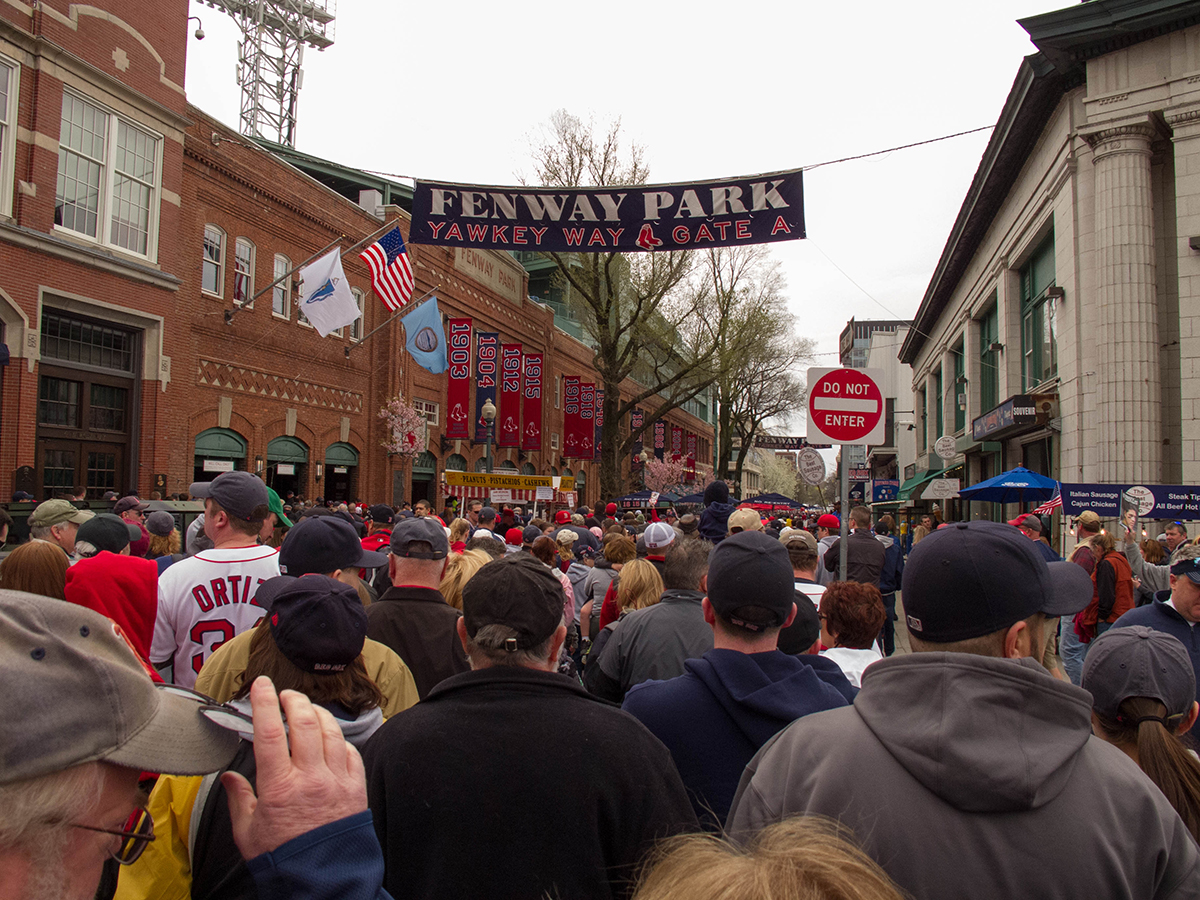Inspector General Glenn Cunha Scolds BRA for Yawkey Way Deal

Yawkey Way by Photomaxmtl on Flickr/Creative Commons
Inspector General Glenn Cunha just provided ammo to those opposing reauthorization of eminent domain powers for the Boston Redevelopment Authority.
It took him over two years, but on Monday Cunha finally affirmed in an official review what many municipal observers already thought: The BRA gave away the farm to the Boston Red Sox in 2013 when it approved a sweetheart deal that gave the club control over Yawkey Way on days major events are held at Fenway Park in perpetuity. Cunha blasted the agency, finding the deal failed to live up to the standards of the BRA, took unfair advantage of a law passed in 2000 when the team wanted to demolish Fenway Park, cost the taxpayers serious money, and flouted the conventional definitions of urban blight.
Cunha’s review found the board rushed its passage of the agreement and demanded far too little in return from the Red Sox. The Red Sox original deal resulted in the ballclub paying Boston $7.34 million over 10 years, or roughly $6,000 per game for exclusive access to Yawkey Way and the air rights on Landsdowne Street for the Green Monster Seats. According to the Inspector General, the Red Sox generated approximately $73,700 in revenue per game from the concessions and retail offerings in those spaces.
“The BRA did not exercise the due diligence it owes to the city and the taxpayers. It failed to ensure that the sale prices it negotiated were in the taxpayers’ best interest. Furthermore, its process for reviewing and approving the transactions was flawed, not supported by evidence and lacked transparency,” said Cunha in his letter.
Cunha did not call for the deal to be scrapped and, instead, pushed the BRA to implement reforms for how it works with so-called demonstration project plans like the one the Red Sox had with the agency from 2003-2012.
“These standards should provide a specific framework for declaring blight, taking property rights, transferring property rights to private parties and conducting demonstration projects generally to ensure that these actions are performed properly, with a public purpose and supported by adequate evidence,” said Cunha.
Peter Meade was in charge of the BRA when the new deal with the Red Sox was approved in 2013.
In an emailed statement, BRA Executive Director Brian Golden said the current leadership of the authority has real problems with how the 2013 deal was approved.
“We cooperated fully with the Office of the Inspector General over the course of the investigation, and we are in the process of reviewing the report and its findings in detail. As the current administration and BRA leadership team have stated all along, we believe the process that led to the agreement with the Red Sox was deeply flawed. Since January 2014, we have worked diligently to enact reforms so that this situation can never be repeated.
“We have already instituted a policy to bring greater transparency, including a public comment period, to any future proposed land deals. Chairman Burke, who cast the lone vote in opposition to the agreement in 2013, has insisted that board members receive information regarding substantive votes further in advance of public meetings to allow for sufficient deliberation, and we have redoubled our efforts to brief the board accordingly. Finally, Mayor Martin J. Walsh has almost entirely reshaped the membership of the board with new leaders that bring a fresh perspective as we continue to reform and modernize our agency.
“There are always lessons to be learned from past mistakes, and we are committed to adopting a policy and procedures that better govern the BRA’s use of demonstration project plans going forward. We value the Inspector General’s thoughtful recommendations on this issue and look forward to enhancing our protocols.”
The Red Sox and Meade did not respond to requests for comment at press time. Boston will add them when we receive them.
UPDATE: The Red Sox issued the following statement:
We understand the Inspector General today released a report about certain Red Sox transactions with the BRA that were reached over two years ago and which the IG has been investigating since. Nearly all of the report addresses potential internal recommendations and process reforms for the BRA.
The Red Sox do, however, want to address a limited point in the report to make clear that the transactions were for fair value, and the product of complex and tough negotiations over a protracted period between the club and the leadership of the BRA in 2013, concluding a process that began a decade earlier.
The transactions were fully supported by fair market analysis done by respected outside appraisers and were lawful and entirely appropriate. If anything, the price the Red Sox were asked to pay for air rights and for the limited use of a street is much higher than what other private parties had previously paid for air rights or for street use. The Red Sox ultimately agreed to the final terms very reluctantly.


